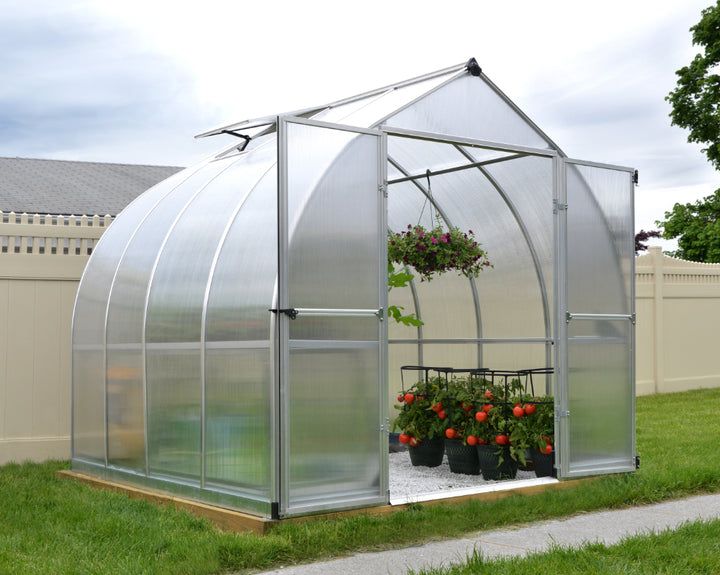
Greenhouses are essential for successful plant growth, shielding them from adverse weather while providing a controlled environment. However, the choice of material for greenhouse panels can significantly impact your garden or farm’s effectiveness. Today, we’ll explore two popular choices—polycarbonate sheets and acrylic sheets—and help you find the best option for your needs.
Comparative Analysis: Polycarbonate vs. Acrylic
Choosing the right greenhouse sheets is crucial for ensuring your plants thrive. Both polycarbonate and acrylic offer unique benefits and challenges that can affect everything from light transmission to thermal insulation. Let’s break down the key factors to consider when selecting between polycarbonate and acrylic sheets.
Durability and Strength
Polycarbonate panels are highly durable, resisting impacts much better than glass, and are ideal for harsh weather conditions. Acrylic panels, while tough, are less impact-resistant than polycarbonate and may not be as reliable in extreme weather. Overall, polycarbonate offers superior strength and resilience for long-term use in diverse climates.
Light Transmission
Polycarbonate panels provide 85% to 90% light transmission with UV protection, safeguarding plants from harmful rays. Acrylic panels offer up to 92% light clarity, ideal for maximizing natural light, but may turn yellow over time due to UV exposure. Choose acrylic for maximum light or polycarbonate for balanced light and UV protection.
Thermal Insulation
Polycarbonate panels provide superior thermal insulation for greenhouses, reducing heating costs and enhancing energy efficiency, especially in colder months. While acrylic panels offer some insulation, they are less efficient and may need extra heating. Generally, polycarbonate is the better choice for maintaining warmth and saving on energy bills.
Cost Comparison: Polycarbonate vs. Acrylic
Initial Costs
Polycarbonate panels are costlier upfront but offer long-term savings with their durability and low maintenance. Acrylic panels are cheaper initially, making them ideal for short-term or smaller greenhouse projects.
Long-Term Value
Polycarbonate greenhouse sheets, despite higher initial costs, offer excellent long-term value due to their durability and low maintenance needs. In contrast, acrylic panels are cheaper upfront but may incur higher long-term costs due to replacements, additional heating needs, and potential yellowing over time.
Performance in Different Situations: Polycarbonate vs. Acrylic
Climate Considerations
- Polycarbonate: Best for regions with extreme weather conditions due to high impact resistance and thermal insulation.
- Acrylic: Suitable for milder climates where high impact resistance is less critical.
Types of Greenhouses
- Commercial Greenhouses: Polycarbonate is preferable for large-scale operations due to its durability and energy efficiency.
- Hobby Greenhouses: Acrylic can be a cost-effective option for smaller, personal projects.
Situational Recommendations: Polycarbonate vs. Acrylic
- For Harsh Weather Conditions: Polycarbonate is the recommended choice for its resilience and thermal properties.
- For Budget-Conscious Projects: Acrylic may be suitable for small-scale or temporary greenhouses in mild climates.
- For Energy Efficiency: Polycarbonate offers better insulation, leading to lower energy costs for heating.
Buy Your Polycarbonate Sheets from Canada Plastics and Belting Inc.
Choosing the best material for your greenhouse panels depends on various factors, including climate, budget, and specific needs. Polycarbonate provides exceptional durability, thermal insulation, and long-term value, making it ideal for large-scale and extreme weather applications. Acrylic, on the other hand, excels in light transmission and is a cost-effective choice for smaller or temporary projects.
For more personalized advice on selecting the right panels for your greenhouse, consider reaching out to Canada Plastics and Belting Inc., the leading polycarbonate sheet supplier in Toronto. Our experts can help you make an informed decision that meets your unique requirements, whether corrugated polycarbonate sheets or Lexan solid sheets.
If you’re ready to take the next step in optimizing your greenhouse, contact us today!
